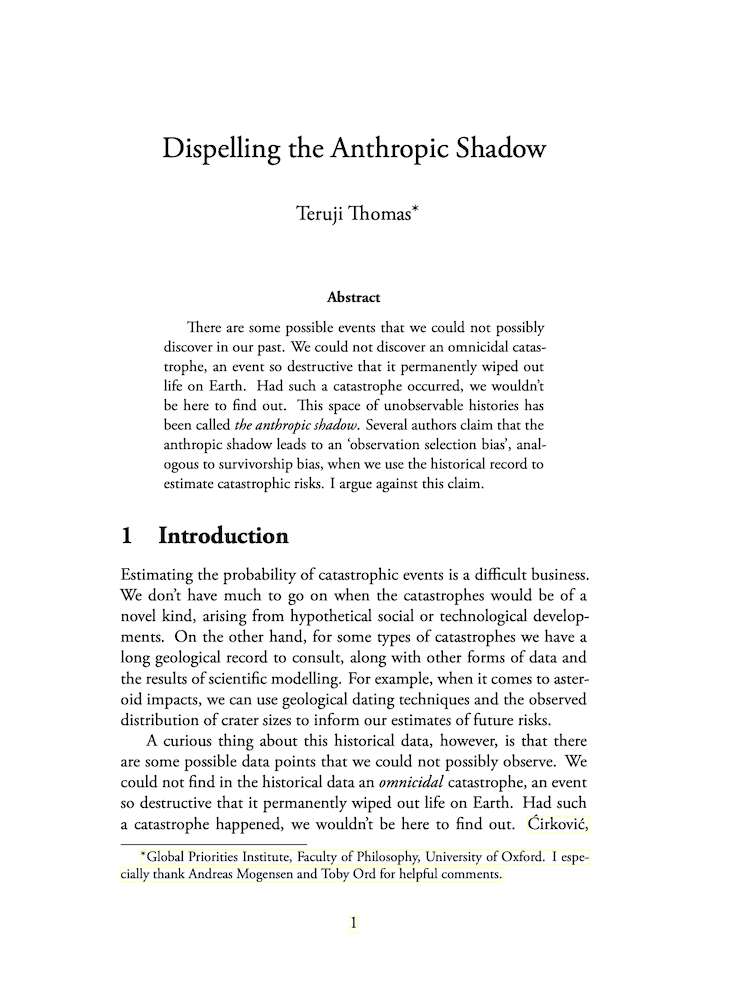Dispelling the Anthropic Shadow
Teruji Thomas (Global Priorities Institute, University of Oxford)
GPI Working Paper No. 20-2024
There are some possible events that we could not possibly discover in our past. We could not discover an omnicidal catastrophe, an event so destructive that it permanently wiped out life on Earth. Had such a catastrophe occurred, we wouldn’t be here to find out. This space of unobservable histories has been called the anthropic shadow. Several authors claim that the anthropic shadow leads to an ‘observation selection bias’, analogous to survivorship bias, when we use the historical record to estimate catastrophic risks. I argue against this claim.
Other working papers
Is Existential Risk Mitigation Uniquely Cost-Effective? Not in Standard Population Models – Gustav Alexandrie (Global Priorities Institute, University of Oxford) and Maya Eden (Brandeis University)
What socially beneficial causes should philanthropists prioritize if they give equal ethical weight to the welfare of current and future generations? Many have argued that, because human extinction would result in a permanent loss of all future generations, extinction risk mitigation should be the top priority given this impartial stance. Using standard models of population dynamics, we challenge this conclusion. We first introduce a theoretical framework for quantifying undiscounted cost-effectiveness over…
The asymmetry, uncertainty, and the long term – Teruji Thomas (Global Priorities Institute, Oxford University)
The Asymmetry is the view in population ethics that, while we ought to avoid creating additional bad lives, there is no requirement to create additional good ones. The question is how to embed this view in a complete normative theory, and in particular one that treats uncertainty in a plausible way. After reviewing…
Crying wolf: Warning about societal risks can be reputationally risky – Lucius Caviola (Global Priorities Institute, University of Oxford) et al.
Society relies on expert warnings about large-scale risks like pandemics and natural disasters. Across ten studies (N = 5,342), we demonstrate people’s reluctance to warn about unlikely but large-scale risks because they are concerned about being blamed for being wrong. In particular, warners anticipate that if the risk doesn’t occur, they will be perceived as overly alarmist and responsible for wasting societal resources. This phenomenon appears in the context of natural, technological, and financial risks…

